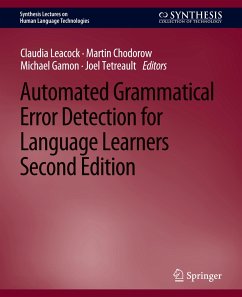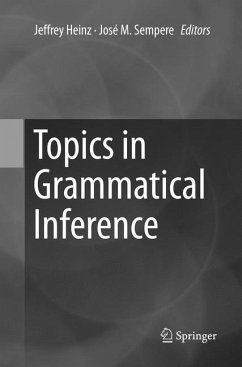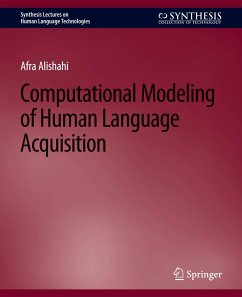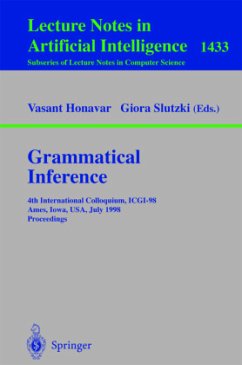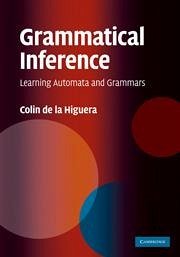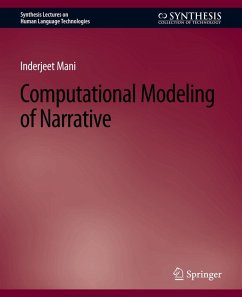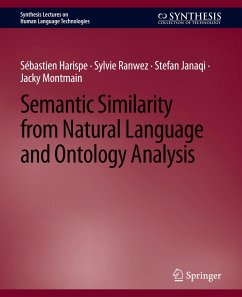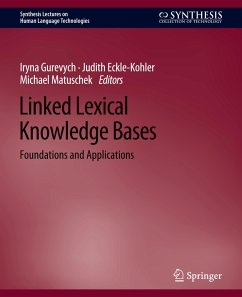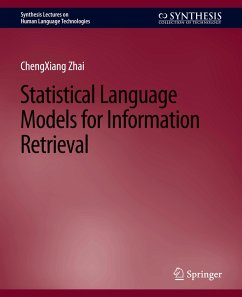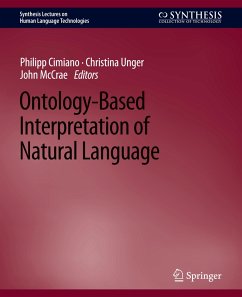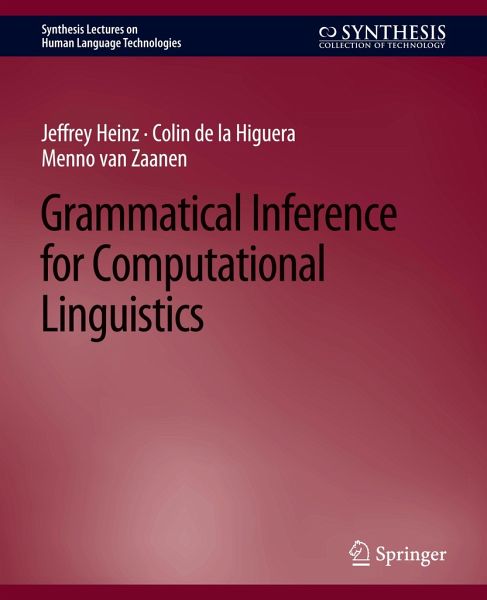
Grammatical Inference for Computational Linguistics

PAYBACK Punkte
0 °P sammeln!
This book provides a thorough introduction to the subfield of theoretical computer science known as grammatical inference from a computational linguistic perspective. Grammatical inference provides principled methods for developing computationally sound algorithms that learn structure from strings of symbols. The relationship to computational linguistics is natural because many research problems in computational linguistics are learning problems on words, phrases, and sentences: What algorithm can take as input some finite amount of data (for instance a corpus, annotated or otherwise) and outp...
This book provides a thorough introduction to the subfield of theoretical computer science known as grammatical inference from a computational linguistic perspective. Grammatical inference provides principled methods for developing computationally sound algorithms that learn structure from strings of symbols. The relationship to computational linguistics is natural because many research problems in computational linguistics are learning problems on words, phrases, and sentences: What algorithm can take as input some finite amount of data (for instance a corpus, annotated or otherwise) and output a system that behaves "correctly" on specific tasks? Throughout the text, the key concepts of grammatical inference are interleaved with illustrative examples drawn from problems in computational linguistics. Special attention is paid to the notion of "learning bias." In the context of computational linguistics, such bias can be thought to reflect common (ideally universal) properties of natural languages. This bias can be incorporated either by identifying a learnable class of languages which contains the language to be learned or by using particular strategies for optimizing parameter values. Examples are drawn largely from two linguistic domains (phonology and syntax) which span major regions of the Chomsky Hierarchy (from regular to context-sensitive classes). The conclusion summarizes the major lessons and open questions that grammatical inference brings to computational linguistics. Table of Contents: List of Figures / List of Tables / Preface / Studying Learning / Formal Learning / Learning Regular Languages / Learning Non-Regular Languages / Lessons Learned and Open Problems / Bibliography / Author Biographies





